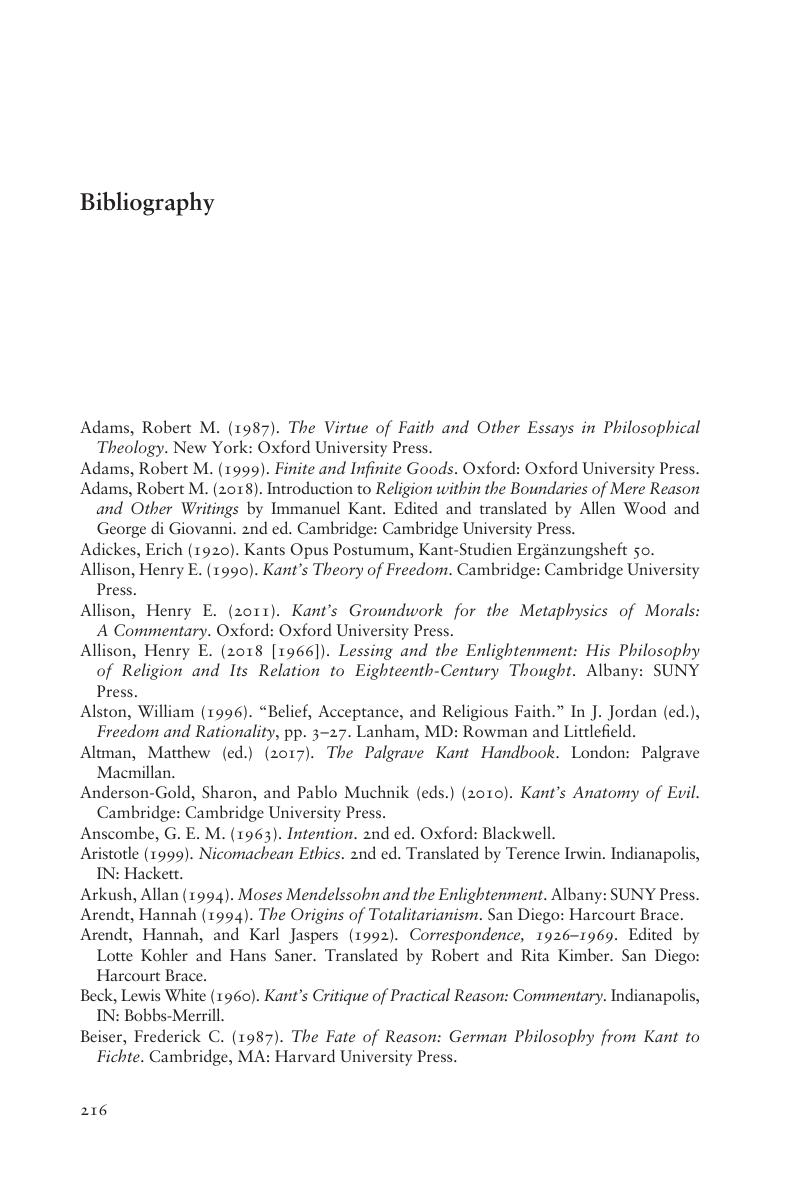Book contents
- Kant and Religion
- Cambridge Studies in Religion, Philosophy, and Society
- Kant and Religion
- Copyright page
- Dedication
- Contents
- Citations
- Preface
- Cover Image
- 1 Religion and Reason
- 2 Moral Faith in God
- 3 The Radical Evil in Human Nature
- 4 The Change of Heart
- 5 The Son of God
- 6 Grace and Salvation
- 7 The Ethical Community and the Church
- 8 Freedom of Conscience
- Concluding Remarks
- Bibliography
- Index
- References
Bibliography
Published online by Cambridge University Press: 08 May 2020
- Kant and Religion
- Cambridge Studies in Religion, Philosophy, and Society
- Kant and Religion
- Copyright page
- Dedication
- Contents
- Citations
- Preface
- Cover Image
- 1 Religion and Reason
- 2 Moral Faith in God
- 3 The Radical Evil in Human Nature
- 4 The Change of Heart
- 5 The Son of God
- 6 Grace and Salvation
- 7 The Ethical Community and the Church
- 8 Freedom of Conscience
- Concluding Remarks
- Bibliography
- Index
- References
Summary

- Type
- Chapter
- Information
- Kant and Religion , pp. 216 - 224Publisher: Cambridge University PressPrint publication year: 2020



